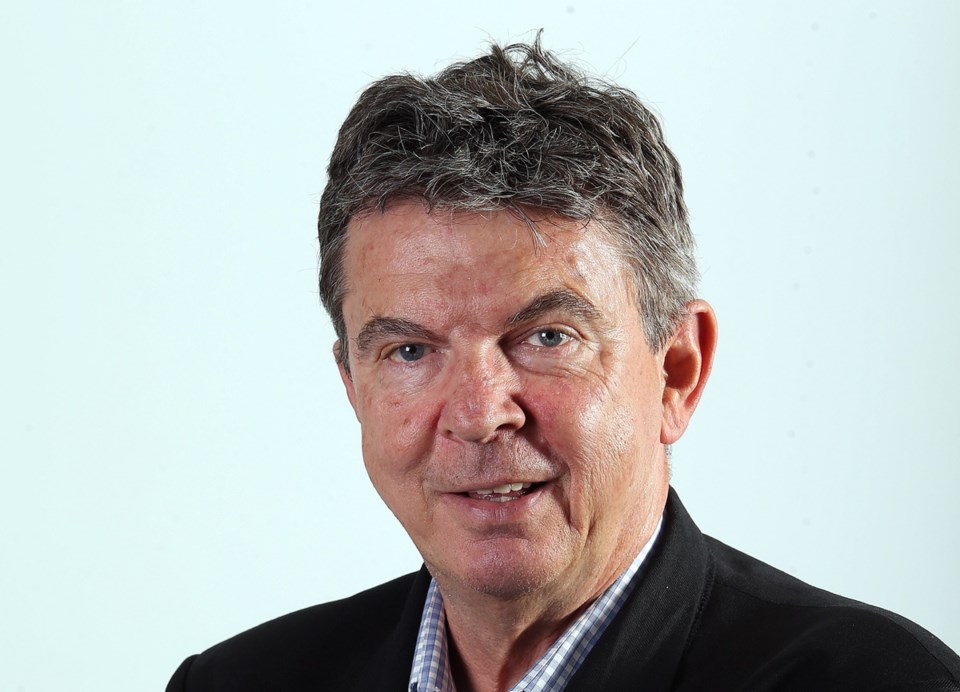 VANCOUVER
VANCOUVER
The capital of the oilsands might be engulfed in flames and production might be in danger, but western premiers were still talking Friday about getting that oil to a coast.
The fiery apocalypse at Fort McMurray underscores the need to do what needs to be done to secure the western Canadian resource economy, Premier Christy Clark said at the conclusion of talks with western and northern counterparts.
Clark stressed the Bank of Montreal’s quick adjustment downward on Friday of its Canadian growth forecast as a result of the fire — from 1.5 per cent to zero — as an indicator of what’s at stake.
“If any Canadian listening today doubts how important Western Canada’s natural resources are to this country, they should pay attention to that fact,” she said. “As Fort Mac burns and as economic infrastructure is threatened, international observers are suggesting our economic growth is going to suffer disastrously as a result.
“That puts the finest point possible on why western premiers are so focused on having investment in the resource economy, and infrastructure and opening up trade opportunities … These resources matter to ever single Canadian, no matter where they live.”
Alberta Deputy Premier Sarah Hoffman said: “We need to support Canadians, and Canadians need access to the best markets. We are going to keep moving to get our product to tidewater. We’re not going to apologize for that. It’s in Canada’s best interest that we get the best price.”
The bank’s lowered sights apply only to the second quarter, and a bank official said it’s only a “placeholder” estimate until the full impact of the fires is assessed.
A communiqué issued by the premiers said achieving greater market access is a shared priority of all jurisdictions. They “reiterated the importance and urgency of moving Canada’s resources to market,” in the context of oil pipelines to tidewater, for shipment to markets other than the U.S.
That stance has held for the past several years, but was refreshed with new leaders in Alberta and Manitoba now in power. They also signed on to recognition that oil or gas has to be moved in a “responsible, sustainable way informed by science-based environmental assessments conducted within existing jurisdictional frameworks.”
Those assessment processes were rapped by Clark, who complained about the 1,000 days the federal government has taken so far on the Pacific Northwest LNG project.
“It’s a terrible process and it needs to be cleaned up,” she said.
A federal review of assessment processes now underway should aim for a timely, predictable system that doesn’t put industries at a competitive disadvantage, she said.
B.C. imposed five conditions on pipelines several years ago relating to safety, First Nations interests and a share of the profits going to B.C.
Clark said progress has been made on meeting them, partly because federal reviews take so long.
Marine-spill response is the most critical one and that’s a federal jurisdiction, she said. But all of the elements are getting closer.
When the five conditions are met, “the proponents will get a Yes,” she said. None of them are there yet, “but progress has been made.”
Clark used the wholesale commitment to oil by the premiers to take a dig at opponents of resource development.
The communiqué said oil and gas will be continue to be a major driver of the economy. Clark said the bulk of western Canada wealth comes from natural resources and that point is “entirely lost” on some people.
“Some people are talking about keeping all of our natural resources locked underground forever, which would hobble western Canada and harm irreparably the Canadian economy.”
The premiers talked to reporters on a hotel deck overlooking the harbour that is a focal point for a lot of that opposition. It would see many more bitumen-loaded tankers if the Kinder Morgan pipeline expansion goes ahead.
The concept of another high-voltage line between B.C. and Alberta that’s been talked about recently got only passing mention during the sessions. A second big intertie that would feed Site C power east, possibly to supply the oilsands, would involve a lot of deal-making. The final statement said the premiers are interested in reviewing potential opportunities, since improved grid connections would be good for energy resources.


